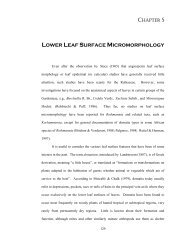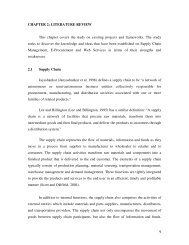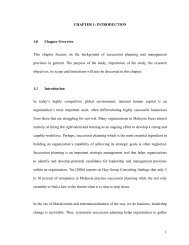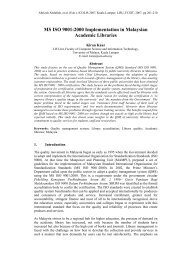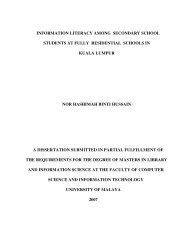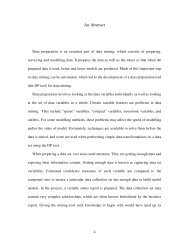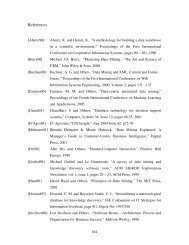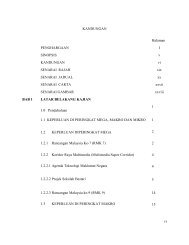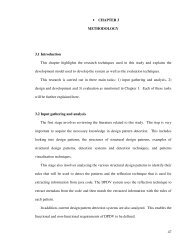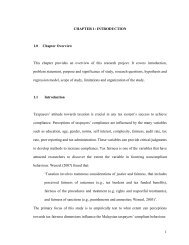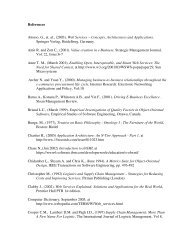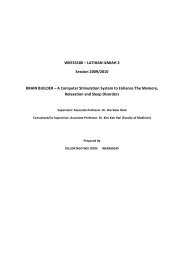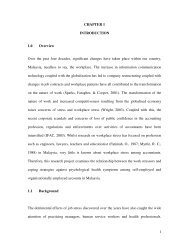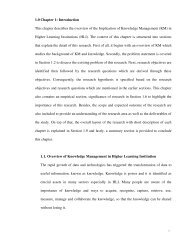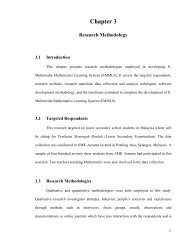CHAPTER 1 1.0 Introduction - DSpace@UM - University of Malaya
CHAPTER 1 1.0 Introduction - DSpace@UM - University of Malaya
CHAPTER 1 1.0 Introduction - DSpace@UM - University of Malaya
You also want an ePaper? Increase the reach of your titles
YUMPU automatically turns print PDFs into web optimized ePapers that Google loves.
The study was conducted in a private tuition centre for Form 1 and 2 classes. So the<br />
findings <strong>of</strong> this study may not reflect the teaching <strong>of</strong> science subject in government<br />
schools at large. On the contrary, the researcher observed the teachers are from<br />
government schools. They are trained teachers and have pr<strong>of</strong>essional and academic<br />
qualifications with teaching experience. Teachers in urban schools have similar<br />
qualification and experience and the pupils too come from multi-etchnic and linguistic<br />
background. The researcher feels that the study carried in a tution centre may even<br />
reflect the teaching <strong>of</strong> science in government schools at large. The methodology used<br />
to teach science in a tution centre, in a rural National school, or in an urban National<br />
school is the same. The findings <strong>of</strong> this study may even reflect the teaching <strong>of</strong> science<br />
in government schools at large.<br />
1.6 Definition <strong>of</strong> the terms<br />
Linguists have different definitions for code-switching. They study code-switching<br />
from linguistic, sociolinguistic, pragmatic, psycholinguistic and grammatical<br />
perspectives. Code-switching is the use <strong>of</strong> two languages in a conversation. Code-<br />
switching takes place in a bilingual and in a multi-lingual society; code-switching<br />
takes place only at boundaries between both languages.<br />
15



